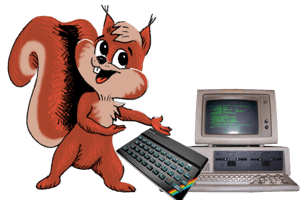Multiparadigm (or multi-paradigm) languages are combination programming languages, mergers, that support, strongly, two or more programming paradigms, models, forms of program representation, within one language. Examples: procedural+functional or procedural+functional+objects or procedural+functional+logic+objects, etc.
Framework languages (or programming language frameworks), a subset of multiparadigm languages, are designed to also be highly extensible and modular, very paradigm agnostic, minimally biased, ideally with no one main paradigm.
Lisp was not originally intended as a multiparadigm language, but it has evolved into one supporting procedural + functional + object programming models.
Some multiparadigm languages allow creating multidimensional databases, providing high speed searching and sorting of complex data.
They are growing more popular. Some experts say that these are the new wave in languages. They are often faster and easier to build and maintain due to their flexibility, and are well suited to Rapid Application Development: RAD.
On this page, languages are arranged in three groups and levels: 1) Top group: issues spanning multiple unrelated languages. 2) Middle group: types or classes of languages. 3) Bottom group: specific languages, with their own directory category.
More information
More information
Subcategories 34
Related categories 12
Sites 12
Created 1974 by Technical University of Berlin group, as alternative to BASIC in teaching, for systematic programming, and related styles: top-down, bottom-up, recursive, modular, syntax-directed. Descriptions, brief resource list, documents. English, Deutsch.
Weblog on language design issues, software development techniques, news, on Heron language, and similar languages like Java, C++.
A provider of high-performance, time-series database technology. A single database for billions of real-time data events, and trillions of historical records, every one accessible virtually instantaneously.
General purpose, compiled; high performance, expressiveness, flexibility. Many features found in other languages, and extra features: creating new operators, keywords, programming paradigms. News, download. [SourceForge]
Usenix Paper discussing multiparadigm programming as part of a larger topic.
Brief description, language list sorted by count and supported paradigms. [Wikipedia]
Pure object-oriented, functional language, statically typed, garbage collected; mixes ideas from Dylan, Lisp, Scheme; ML; Cecil, Smalltalk; description, slide show, downloads, links. [Open Source, MIT]
Presented at OOPSLA 1994.
General purpose language; multiparadigm (object-oriented, functional, concurrent elements); statically typed, type-safe; focus: Web services. Successor of Funnel. Interoperates with Java VM or .NET, XML aware. [Open source, BSD-like license]
The eXtensible Language: easy to use, multi-syntax, portable set of APIs to create CLI and GUI applications for Unix/X11 and Win32; will ease making big applications, has interpreter/compiler/debugger. [Open Source, GPL]
XL is designed to implement the ideas of Concept Programming. It can apply to many domains and problem spaces, not only a small subset of the problems users must solve.
Forum with many comments. [Slashdot]
(December 08, 2004)
A provider of high-performance, time-series database technology. A single database for billions of real-time data events, and trillions of historical records, every one accessible virtually instantaneously.
General purpose language; multiparadigm (object-oriented, functional, concurrent elements); statically typed, type-safe; focus: Web services. Successor of Funnel. Interoperates with Java VM or .NET, XML aware. [Open source, BSD-like license]
XL is designed to implement the ideas of Concept Programming. It can apply to many domains and problem spaces, not only a small subset of the problems users must solve.
General purpose, compiled; high performance, expressiveness, flexibility. Many features found in other languages, and extra features: creating new operators, keywords, programming paradigms. News, download. [SourceForge]
Usenix Paper discussing multiparadigm programming as part of a larger topic.
Created 1974 by Technical University of Berlin group, as alternative to BASIC in teaching, for systematic programming, and related styles: top-down, bottom-up, recursive, modular, syntax-directed. Descriptions, brief resource list, documents. English, Deutsch.
Brief description, language list sorted by count and supported paradigms. [Wikipedia]
Presented at OOPSLA 1994.
The eXtensible Language: easy to use, multi-syntax, portable set of APIs to create CLI and GUI applications for Unix/X11 and Win32; will ease making big applications, has interpreter/compiler/debugger. [Open Source, GPL]
Pure object-oriented, functional language, statically typed, garbage collected; mixes ideas from Dylan, Lisp, Scheme; ML; Cecil, Smalltalk; description, slide show, downloads, links. [Open Source, MIT]
Weblog on language design issues, software development techniques, news, on Heron language, and similar languages like Java, C++.
Forum with many comments. [Slashdot]
(December 08, 2004)
